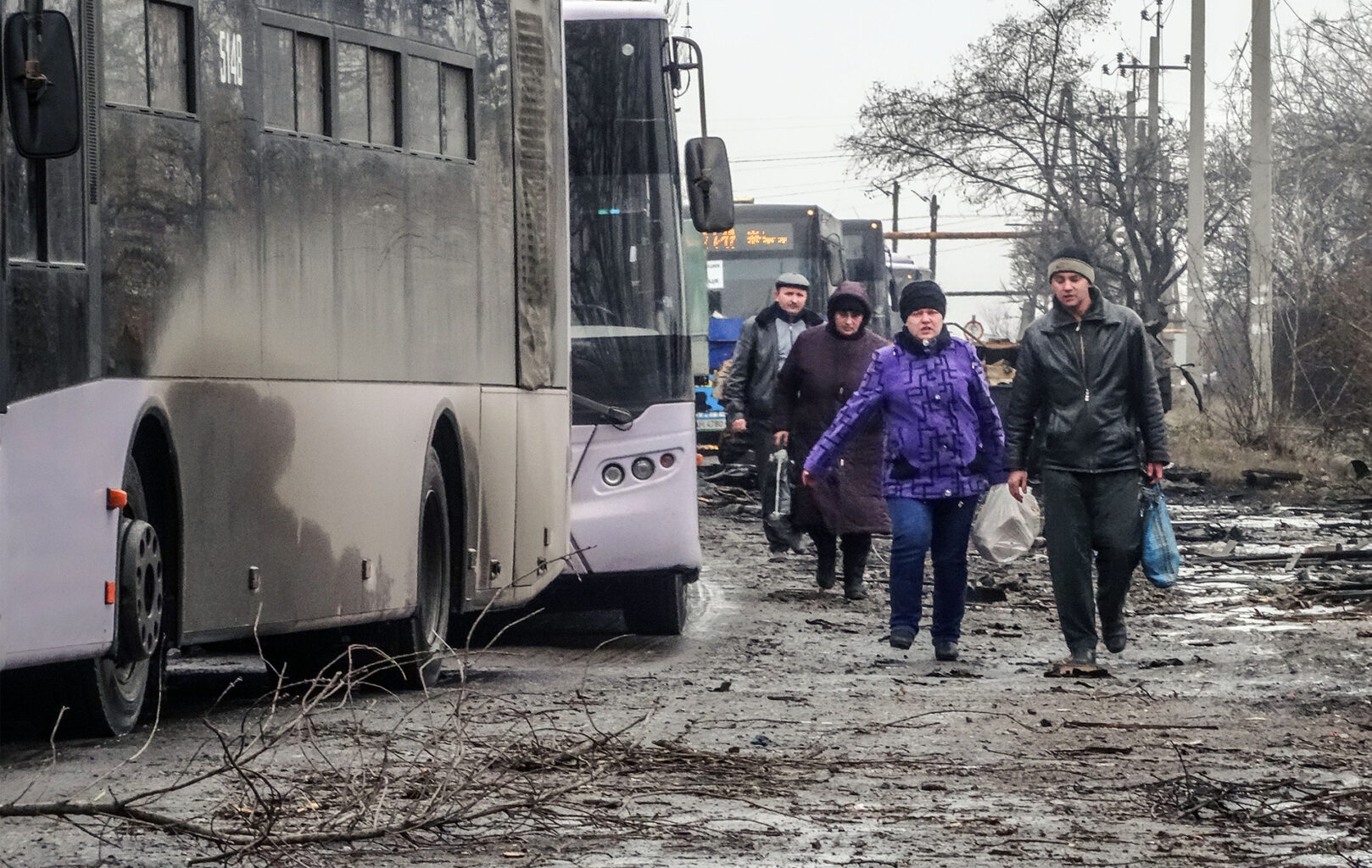What’s next?
Last week the Ukrainian teams of Doctors of the World were, as well as the rest of the country, confronted with the unimaginable: war. Since 2015, Doctors of the World has been working in the country and now it has been forced to put its activities on hold. So, the question remains: what’s next? An insight into our teams in Ukraine.
On 28 February, a Russian attack caused one fatality and several people injured in Sievierodonetsk. In this region, Doctors of the World supports twelve care centres in normal times with its mobile teams, medicines and medical equipment.
28 February’s attack demonstrates how dangerous the current situation is. Why did Doctors of the World decide to evacuate its teams from the front lines? “Our staff, consisting of approximately a hundred people, are currently fleeing with their families like the rest of the population. Every day, we remain in contact with them and up until now everyone is safe and in good health, despite the extremely difficult situation they’re in,” Francois De Keersmaker, Director of Doctors of the World Germany, explains. “As soon as the situation is secure and safe, Doctors of the World intends to return to the affected areas: in the meantime, we have sent an emergency team to Romania at the Ukrainian border to reorganise the team and provide humanitarian assistance as soon as possible.”
We also continue to deliver equipment: “End of last week, we managed to deliver medical and surgical supplies to the Sievierodonetsk hospital. Two more deliveries have been made this week to two more hospitals.”
Lastly, Doctors of the World is also preparing rescue operations and medical assistance to Ukrainian citizens who are on their way to the surrounding neighbouring countries or who, in the meantime, arrived in Europe: “Today, there are hundreds of thousands of civilians on the run. Doctors of the World has gained a great expertise in recent years in providing support to people on the run in and around Europe. The countries that are now confronted with these refugees’ movements are bewildered by the scale of this crisis. We aim to assist them without (psycho)medical expertise.”
Before the conflict, what did Doctors of the World do in Ukraine?
Since 2015, Doctors of the World has been working from two locations: In the Donbas in Sievierodonetsk (in the Luhansk oblast) and in Bakhmut (in the Donetsk oblast).
From there, our mobile teams were travelling to the region closest to the former border areas. This is where we were supporting around twenty health centres that lack every possible resource (running water, electricity, staff, equipment, medicines, etc.) and where more than a third of the population is over sixty years old. Since 2015, we already provided about 125,000 consultations, which is about 16,000 consultation per year.
As new front lines are established, our medical teams will provide urgent medical assistance through primary care and psychological support to civilians injured, dislocated or traumatised by the war.
In Greece
Médecins du Monde continues to collect humanitarian aid at its offices in Athens and Thessaloniki (more information) and is already preparing the departure of the first mission to the borders of Romania, Moldova and Ukraine. At the same time, they have their Open Polyclinics, their housing programmes and their Mobile Medical Units in Athens, Thessaloniki and Kavala to care and protect the refugees already arriving in our country from Ukraine.

